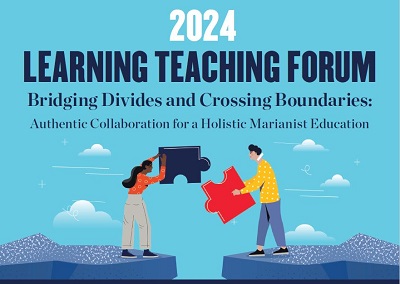Subscribe to RSS Feed (Opens in New Window)
| 2024 | ||
| Wednesday, January 3rd | ||
| 1:20 PM |
Virtual Academic Coaching (vAC): A Practical Technology for Student Engagement Jessica Gregor, University of Dayton Kennedy Union Room 331 1:20 PM - 2:10 PM Virtual academic coaching (vAC), distinct from the roles and responsibilities of post-secondary educators or counselors, is a novel method of higher education student development and retention, and is quickly becoming established at both public and private universities throughout the United States and abroad. Although relatively new to the canon of student success in higher education, virtual coaching is foundationally based in longstanding tenets of adult education and relies on principles which educators and counselors have recognized since the formalization of the post secondary classroom. Positive research into efficacy of the virtual academic coaching profession lends credibility to its potential for success with wide implementation, and its forward-facing and high level of engagement with adult students certainly suggests that the role of academic coach will continue to grow in the post-secondary setting, and therefore will continue to be a fruitful area of research and student success programming at the university level. |
|
|---|---|---|
| 1:20 PM |
X Marks the Spot: Mapping Students' Understandings of Support Resources on UD's Campus Alison Witte, University of Dayton Kennedy Union Room 331 1:20 PM - 2:10 PM There has been increasing emphasis placed on providing holistic support to students during their college education. Services offered play an integral role in campus tours, visit days, Welcome Week, and many other student-facing events. What drives this emphasis is both the belief that students (and perhaps more accurately, their parents) want/need these services and the evidence in forms of course performance, CARE reports, and increasing demands for alternative testing and accommodations that students need some of these services. But having services is not sufficient. Students’ success is inextricably linked to their abilities to understand and navigate the many offices, services, programs and systems designed to support them academically, socially, emotionally, and physically. This interactive workshop will present findings from an IRB-approved study that collected data from over 100 first year students in ASI 150/160 sections in the fall of 2022. Students were asked to map their understandings of the on-campus resources that support them. Results reveal that students struggle to understand the complex systems of services on-campus, especially when services lack a physical location or clearly defined purpose or brand. But results also provide insights about the important role faculty members play in connecting students with resources. Because of this important role of faculty in connecting students to resources, following the presentation, participants will make maps of their own and share in discussion focused on what they learn about their own understanding of campus resources. |
|



